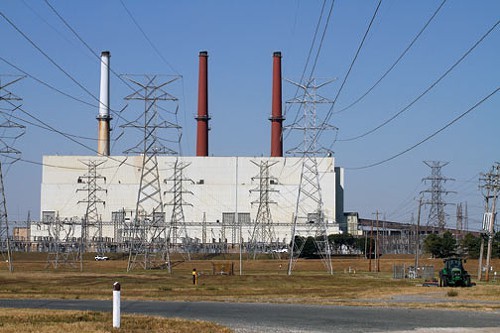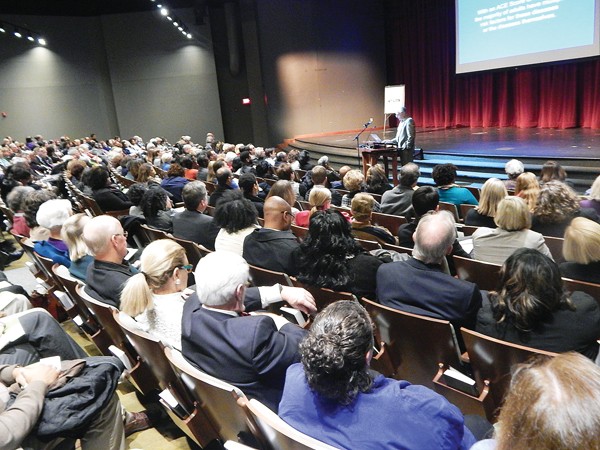Last week, the Trump Environmental Protection Agency (EPA) finalized its Affordable Clean Energy (ACE) regulation to replace the Obama-era Clean Power Plan (CPP). But the replacement rule will be neither affordable nor clean. The CPP would have driven significant emission reductions in the Southeast, bringing health and economic benefits.
I spent more than three years becoming the “CPP expert” at a global firm of about 450 energy consultants, and this is possibly the last chance I’ll get to use that now-obsolete knowledge, so here is some background on what’s happening — and why it matters to my fellow Tennesseans.
After the draft CPP was released, there was plenty of pontificating about how easy/hard compliance would be and how many costs/benefits would follow. I spoke at conferences, met with clients, and was asked the same question: Will the regulation happen? I even moderated a conference panel while eight mo
 Justin Fox Burks
Justin Fox Burks
TVA’s old Allen Coal Plant
nths pregnant, not a typical sight at an energy industry event.
The final CPP rule came out in the middle of my maternity leave. My husband cared for our baby for a few days while I voraciously read through the rule documentation. My team and our clients needed my take on the rule.
The day after the 2016 election, I updated all our models to remove any carbon regulation. We knew the CPP would never go into effect. It felt like a big change, but results didn’t change much. Economics, not the CPP, was driving the model to select a future with less coal and more wind and solar.
In fact, when we look at the CPP, it seems quaint for most parts of the country. The Department of Energy’s own analysis shows the country’s emissions likely to be lower in 2030 than the CPP would have required. However, the Southeast, including Tennessee and the Tennessee Valley Authority (TVA), is not on track to reduce emissions, even at the minimal rate called for in the Clean Power Plan. The CPP would have made a big difference in the Southeast, and residents of these states will suffer greater health and economic hardships as a result of its repeal.
I am outraged that an agency tasked with protecting the American people is using a finding that CO2 endangers public health and welfare so perversely. The proposed ACE not only rolls back the CPP, but it also could lead to an increase in air pollution across our region and promises to negatively impact public health and welfare.
The ACE proposes to reduce CO2 emissions through making coal plants more efficient so they generate more electricity from each unit of coal. Sounds good, right? And a more efficient plant costs less to operate. Still sounds like a good thing. However, utilities and markets operate power plants based on the plants’ cost to generate. If coal plants cost less to operate, they will be used to generate more electricity. Therefore it is likely that coal emissions would increase under ACE.
The EPA’s analysis of ACE shows increases in coal generation. That means more smog, heavy metals, and particulate matter that lodges in our lungs and gives our kids asthma. This is really nasty stuff. The ACE rule would cause 1,400 more premature deaths per year than the CPP. Instead of changing the rule to reduce the actual number of premature deaths, the EPA is proposing to ignore those premature deaths by changing the way they are calculated.
In the ACE, the Trump EPA also promises to change a part of the Clean Air Act known as New Source Review (NSR) in the future. I don’t have enough space for details, but the change could allow coal power plants to pollute more per year.
I want to give a shout-out to all my fellow CPP experts, particularly current and former EPA employees, who put hours of thought, analysis, blood, sweat, and tears into the Clean Power Plan. I see you. I’m with you. And though the CPP is a thing of the past, the effort that went into it will make carbon policy across the U.S. better in the future.
The release of the final ACE rule felt very different from the release of the CPP. Instead of being on maternity leave, we just celebrated my son’s fourth birthday. I have moved from consulting to advocacy work. Instead of wondering how states could work together to reduce emissions, I’m worried about how the ACE rule will affect our children’s future.
Maggie Shober is director of Power Market Analytics at the Southern
Alliance for Clean Energy.
 Louis Goggans
Louis Goggans